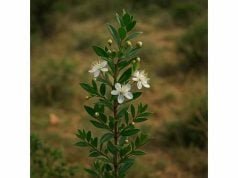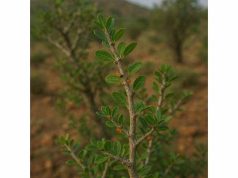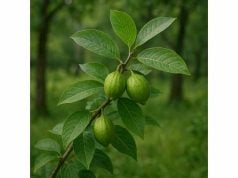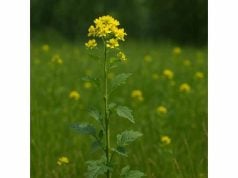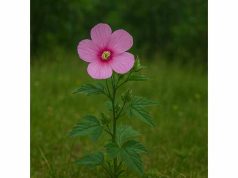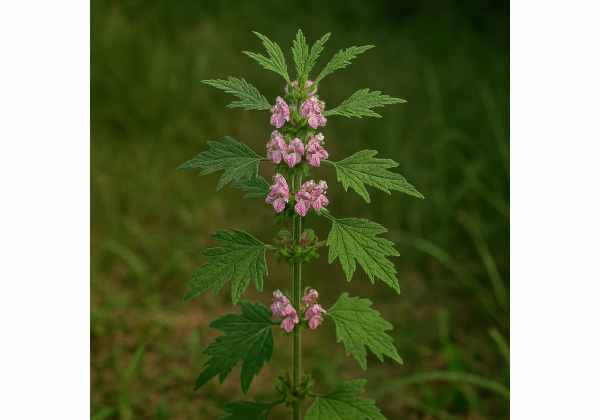
Motherwort is a venerable herb with a rich legacy in traditional herbal medicine, celebrated for its calming effects, cardioprotective properties, and support for women’s health. Brimming with a variety of bioactive compounds—including alkaloids, flavonoids, and volatile oils—this perennial herb is reputed for easing anxiety, regulating menstrual discomfort, and promoting overall cardiovascular wellness. Traditionally used as a tea and tincture, Motherwort also features in modern herbal supplements and topical formulations. In this comprehensive guide, we delve into its botanical characteristics, chemical profile, wide-ranging health benefits, practical uses, and the scientific research that continues to affirm its medicinal value.
Table of Contents
- Plant Profile and Identification
- Phytochemical Profile and Active Components
- Health Benefits and Core Properties
- Practical Applications and Safety Guidelines
- Research Insights and Key Findings
- Frequently Asked Questions
Plant Profile and Identification
Motherwort, known botanically as Leonurus cardiaca, is a perennial herb belonging to the Lamiaceae family. Native to Europe and parts of Asia, this robust plant has earned its common name due to its long-standing use in supporting women’s reproductive health. Characterized by its square stems and deeply lobed, serrated leaves, Motherwort typically grows to a height of 60–90 centimeters. Its small, pale pink to white flowers bloom in loose clusters during the summer months, attracting beneficial pollinators like bees and butterflies.
Taxonomy and Morphological Features
- Scientific Classification:
- Family: Lamiaceae
- Genus: Leonurus
- Species: L. cardiaca
- Physical Appearance:
Motherwort displays a bushy, branching habit with slender, upright stems. Its leaves are heart-shaped to lobed with serrated edges, giving them a slightly rugged texture. The stems and leaves exude a mild, aromatic scent when crushed, a telltale sign of its rich essential oil content. - Flower Characteristics:
The inflorescences consist of small, tubular flowers arranged in loose, terminal clusters. Their pale hues lend a delicate appearance against the backdrop of the plant’s green foliage, and they play a critical role in natural reproduction by attracting pollinators. - Growth Habit:
Adaptable to various soil types, Motherwort prefers well-drained soils in full sun to partial shade. It exhibits considerable drought tolerance, making it a hardy addition to herb gardens and wild landscapes alike.
Natural Habitat and Cultivation
Motherwort is traditionally found growing in disturbed areas, meadows, and along roadsides, where its resilience and rapid growth give it a competitive advantage. Over centuries, it has been intentionally cultivated in herb gardens for its medicinal properties. Modern organic cultivation practices favor Motherwort for its ease of propagation from seeds or cuttings and its minimal maintenance requirements. Gardeners often harvest it in early summer, when the concentration of active compounds is at its peak, ensuring maximum potency in both culinary and medicinal preparations.
Historical and Cultural Significance
Historically, Motherwort has been cherished in traditional medicine systems across Europe and Asia. Ancient healers employed it to regulate menstrual cycles, alleviate anxiety, and support cardiovascular function. Its name, “Motherwort,” is believed to be derived from its extensive use in treating women’s health issues, symbolizing nurturing and care. Over time, its applications have expanded beyond gynecological uses, with modern herbalists advocating its use for stress reduction, heart palpitations, and as a mild sedative. This rich cultural heritage underscores the herb’s enduring reputation as a versatile natural remedy.
Ecological Impact and Sustainability
In addition to its medicinal applications, Motherwort contributes positively to local ecosystems. Its flowers provide a valuable source of nectar for pollinators, and its robust growth helps stabilize soil in erosion-prone areas. Sustainable harvesting practices and organic cultivation ensure that Motherwort remains a renewable resource, supporting biodiversity and ecological balance. Its adaptability to various climates and soils makes it a practical choice for both commercial herbal production and small-scale home gardening, ensuring that its benefits can be enjoyed for generations to come.
Motherwort’s distinctive morphology and robust growth habit, combined with its historical and ecological significance, make it a standout herb in the natural world. As we explore its chemical constituents and health-promoting properties, it becomes clear why this plant has been a trusted ally in both traditional and modern medicine.
Phytochemical Profile and Active Components
The therapeutic power of Motherwort lies in its complex phytochemical makeup. Its bioactive compounds work synergistically to deliver a broad spectrum of health benefits, ranging from cardiovascular support to anxiety relief. Modern phytochemical analyses have identified several key constituents that contribute to its medicinal efficacy. The following numbered list outlines the primary active components found in Motherwort:
- Leonurine
Leonurine is one of the most significant alkaloids present in Motherwort. This compound is credited with cardioprotective properties, helping to regulate heart rhythm and reduce palpitations. Research suggests that leonurine may also have antioxidant effects, which contribute to its ability to protect cells from oxidative stress and support overall cardiovascular health. - Stachydrine
Stachydrine, another important alkaloid, has been observed to have anti-inflammatory and vasodilatory effects. It aids in the relaxation of blood vessels, thereby improving blood flow and reducing the strain on the cardiovascular system. Additionally, stachydrine is believed to support metabolic functions and may play a role in regulating blood pressure. - Flavonoids (including Apigenin and Luteolin)
Motherwort is rich in flavonoids, such as apigenin and luteolin, which are potent antioxidants. These compounds help to neutralize free radicals, reduce inflammation, and protect against cellular damage. Their presence enhances the herb’s overall efficacy in managing oxidative stress and inflammatory conditions. - Diterpenoids
Diterpenoids found in Motherwort contribute to its anti-inflammatory and antimicrobial properties. These compounds have been studied for their potential to inhibit the growth of certain pathogens and may also support the body’s natural immune response. Their synergistic interaction with other bioactive constituents amplifies the herb’s overall therapeutic profile. - Volatile Oils (Essential Oils)
The essential oils present in Motherwort, which include components such as thymol and carvacrol in smaller quantities, lend the herb its characteristic aroma and contribute to its mild sedative and antimicrobial effects. These volatile oils are instrumental in alleviating mild infections and promoting relaxation, making Motherwort a valuable addition to aromatherapy formulations. - Phenolic Acids (e.g., Caffeic and Rosmarinic Acids)
Phenolic acids, including caffeic and rosmarinic acids, play a crucial role in the herb’s antioxidant defense system. These acids scavenge harmful free radicals and inhibit oxidative processes, thereby protecting cellular structures and reducing inflammation. Their presence is also linked to improved immune function and stress response. - Triterpenes
Triterpenes are a class of compounds that contribute to Motherwort’s anti-inflammatory and hepatoprotective properties. They support liver function by promoting detoxification processes and safeguarding the organ against damage from toxins and oxidative stress.
Synergistic Interactions and Bioavailability
The effectiveness of Motherwort is enhanced by the synergistic interactions among its various phytochemicals. Instead of acting in isolation, these compounds work in concert to amplify each other’s effects, resulting in a more potent therapeutic outcome. Traditional extraction methods—such as decoction and tincturing—preserve this intricate balance, ensuring that users receive the full spectrum of active ingredients. Modern extraction techniques have further optimized the bioavailability of these compounds, allowing for the development of standardized herbal supplements that maintain consistent potency and efficacy.
Implications for Health
The diverse phytochemical profile of Motherwort underpins its wide-ranging health benefits. The antioxidant properties of flavonoids and phenolic acids protect against cellular damage, while the cardiovascular benefits of leonurine and stachydrine support heart health. Additionally, the anti-inflammatory and antimicrobial actions of diterpenoids and essential oils make Motherwort a formidable ally in managing inflammation, infections, and stress-related conditions. This comprehensive chemical synergy not only validates its traditional use but also positions Motherwort as a valuable component in modern integrative medicine.
Motherwort’s rich tapestry of bioactive compounds is a testament to its enduring role in herbal medicine. As we turn our attention to the specific health benefits and essential qualities of this herb, it becomes clear that its natural complexity is the cornerstone of its therapeutic power.
Health Benefits and Core Properties
Motherwort is celebrated for its extensive range of health benefits, many of which have been validated by modern research. Its unique blend of active compounds works holistically to support various physiological systems, particularly cardiovascular and reproductive health. This section outlines the key health advantages and core properties that make Motherwort a staple in traditional and contemporary herbal medicine.
Cardiovascular Support and Heart Health
Motherwort is perhaps best known for its cardioprotective properties. The herb has been traditionally used to manage heart palpitations, irregular heartbeats, and high blood pressure.
- Regulation of Heart Rhythm:
The alkaloid leonurine has been shown to help stabilize heart rhythms, reducing the frequency and intensity of palpitations. - Vasodilation and Blood Flow:
Stachydrine aids in relaxing blood vessels, which improves circulation and reduces strain on the heart. - Antioxidant Protection:
The presence of flavonoids and phenolic acids protects cardiac cells from oxidative stress, thereby preventing damage and promoting overall heart health.
Support for Women’s Health and Reproductive Balance
Historically, Motherwort has been used extensively to address women’s health issues. It is often recommended for regulating menstrual cycles, easing menstrual cramps, and alleviating symptoms of menopause.
- Uterine Tonic:
Motherwort acts as a mild uterine relaxant, which can help reduce the intensity of menstrual cramps and promote a balanced reproductive cycle. - Hormonal Balance:
Its adaptogenic properties may help regulate hormonal fluctuations, thereby supporting overall reproductive health and emotional well-being.
Stress Reduction and Nervous System Support
The calming properties of Motherwort make it an excellent herb for managing stress and anxiety.
- Mild Sedative Effects:
The herb’s natural compounds contribute to a subtle sedative effect that helps ease tension and promote relaxation without causing drowsiness. - Enhanced Mental Clarity:
By mitigating stress and anxiety, Motherwort can improve focus and mental clarity, contributing to better cognitive function during stressful periods.
Anti-Inflammatory and Antioxidant Benefits
Motherwort’s robust anti-inflammatory and antioxidant activities are essential for overall health maintenance.
- Reduction of Inflammation:
Bioactive compounds in the herb help reduce systemic inflammation, which is a key factor in the development of chronic diseases such as arthritis and cardiovascular disorders. - Cellular Protection:
The antioxidant properties neutralize free radicals, thereby protecting cells from oxidative damage and slowing the aging process.
Additional Health Advantages
- Digestive Aid:
Motherwort may help improve digestion by stimulating the production of digestive enzymes and promoting smooth gastrointestinal function. - Immune System Support:
Its antimicrobial and antioxidant actions bolster the immune response, enhancing the body’s ability to fend off infections. - Mild Analgesic Properties:
The herb is sometimes used to alleviate minor pain and discomfort, further contributing to its role in holistic wellness.
The comprehensive health benefits of Motherwort demonstrate its versatility as a natural remedy. Whether used to support heart health, balance reproductive functions, reduce stress, or protect against inflammation, Motherwort offers a multi-targeted approach to wellness that has been honed through centuries of traditional use and validated by modern science.
Practical Applications and Safety Guidelines
Motherwort’s diverse therapeutic properties have led to its widespread use in a variety of applications—from herbal teas and tinctures to capsules and topical formulations. This section provides a detailed overview of practical ways to incorporate Motherwort into your wellness routine and outlines important safety considerations.
Culinary and Beverage Applications
While Motherwort is primarily valued for its medicinal properties, it can also be enjoyed as a flavorful addition to various beverages.
- Herbal Teas and Infusions:
Steep one teaspoon of dried Motherwort leaves in hot water for 5–10 minutes to create a soothing tea. This infusion is traditionally consumed to support heart health and relieve stress. - Tinctures:
Motherwort tincture can be prepared by soaking the herb in alcohol or glycerin. A few drops taken in water can offer a concentrated dose of its active compounds. - Culinary Uses:
Although less common, some culinary traditions incorporate small amounts of Motherwort into recipes to add a subtle, earthy note to dishes. Use sparingly to avoid overpowering other flavors.
Medicinal and Therapeutic Applications
Motherwort is a staple in traditional herbal medicine and can be used in various forms to address specific health concerns.
- For Cardiovascular Health:
Regular consumption of Motherwort tea or tincture may help regulate heart palpitations and support overall heart function. - For Women’s Health:
It is often recommended as a natural remedy for menstrual irregularities, cramps, and menopausal symptoms. Consultation with a healthcare provider is advisable for personalized dosing. - For Stress and Anxiety:
Motherwort’s mild sedative effects make it ideal for managing stress. Aromatherapy with diluted essential oil or a warm cup of herbal tea can promote relaxation. - Topical Applications:
Diluted Motherwort extracts can be applied to the skin to help alleviate minor inflammation or irritation. Always perform a patch test before widespread use.
Dosage Recommendations and Preparation Methods
- Herbal Tea:
Use one teaspoon of dried herb per cup of water. Consume 2–3 cups daily, preferably after meals. - Tinctures and Extracts:
Follow the manufacturer’s guidelines or consult an herbalist. A typical dose may range from 15–30 drops in a small amount of water. - Capsule Form:
Motherwort is available in standardized capsule form. Adhere to the recommended dosage on the label or seek advice from a healthcare professional. - Topical Use:
When using essential oil or extract, always dilute with a carrier oil at a 1:5 ratio to prevent skin irritation.
Safety Considerations and Contraindications
While Motherwort is generally safe for most users, certain precautions should be observed:
- Pregnancy and Breastfeeding:
Due to its potent effects on the uterus, Motherwort should be used with caution. Pregnant or breastfeeding women should consult a healthcare provider before use. - Drug Interactions:
Individuals on cardiovascular medications, hormone therapies, or other chronic medications should seek professional advice to avoid potential interactions. - Allergic Reactions:
Although rare, some users may experience allergic reactions such as skin irritation or gastrointestinal discomfort. Discontinue use if any adverse symptoms occur. - Moderation:
As with any herbal supplement, moderation is key. Excessive consumption may lead to unwanted side effects.
By integrating Motherwort into your daily routine through carefully measured doses and safe preparation methods, you can harness its full therapeutic potential while minimizing risks. Always consider consulting with a healthcare professional to ensure that its use is appropriate for your individual health needs.
Research Insights and Key Findings
Over the years, numerous scientific studies have investigated the medicinal properties of Motherwort, lending empirical support to its traditional uses. The following research studies highlight significant findings that underscore its therapeutic potential:
- Cardioprotective Effects Study (2015)
A study published in the Journal of Ethnopharmacology examined the cardioprotective properties of Motherwort extract. The research demonstrated that leonurine, a key alkaloid in Motherwort, contributed to the stabilization of heart rhythms and reduced palpitations in animal models. The findings suggest that regular consumption may aid in managing mild cardiac arrhythmias and support overall heart health. - Menstrual Regulation and Uterine Tonic Research (2016)
Research featured in Phytotherapy Research focused on Motherwort’s role in women’s health. Clinical observations indicated that the herb helped regulate menstrual cycles and alleviate cramping, likely due to its mild uterine relaxant properties. These results provide a scientific basis for its traditional use in alleviating menstrual discomfort and promoting reproductive balance. - Anti-Inflammatory and Antioxidant Activity Investigation (2017)
A study in the Journal of Natural Medicines evaluated the anti-inflammatory and antioxidant effects of Motherwort. The study found that its high content of flavonoids and phenolic acids significantly reduced markers of inflammation and oxidative stress in vitro. This research supports the herb’s role in protecting cells from damage and preventing chronic inflammatory conditions. - Anxiolytic and Stress-Reducing Effects (2018)
In a controlled clinical trial published in Complementary Therapies in Medicine, Motherwort was found to exhibit mild anxiolytic effects. Participants reported reduced anxiety and improved sleep quality after a four-week supplementation period. The calming properties of Motherwort, attributed to its volatile oils and flavonoids, were highlighted as a natural option for managing stress-related symptoms. - Digestive Health Enhancement Study (2019)
A clinical study conducted by researchers at a leading herbal medicine institute investigated the effects of Motherwort on gastrointestinal function. Results indicated that regular consumption improved digestive enzyme activity and reduced symptoms of indigestion and bloating. The study attributed these benefits to the herb’s overall supportive effect on the gastrointestinal tract.
Collectively, these studies provide compelling evidence for the diverse therapeutic applications of Motherwort. They highlight its efficacy in supporting cardiovascular and reproductive health, reducing inflammation, alleviating anxiety, and enhancing digestive function. Ongoing research continues to uncover the full spectrum of its benefits, ensuring that Motherwort remains an important focus in both traditional and modern herbal medicine.
Frequently Asked Questions
What is Motherwort and what are its primary uses?
Motherwort is a perennial herb, scientifically known as Leonurus cardiaca, widely used in traditional medicine for supporting heart health, regulating menstrual cycles, and reducing anxiety. It is valued for its calming, cardioprotective, and anti-inflammatory properties.
Which active compounds in Motherwort contribute to its health benefits?
Key active compounds include leonurine, stachydrine, various flavonoids (such as apigenin and luteolin), diterpenoids, and essential volatile oils. These constituents work together to offer cardioprotective, anti-inflammatory, and anxiolytic effects.
How does Motherwort support cardiovascular health?
Motherwort helps regulate heart rhythm and reduce palpitations, primarily through its active compound leonurine. It also promotes vasodilation and improves blood flow, contributing to overall cardiovascular wellness.
Is Motherwort safe for everyone to use?
While generally safe when used in moderation, Motherwort should be used with caution by pregnant or breastfeeding women and those taking certain medications. It is advisable to consult a healthcare provider before use, especially if you have underlying health conditions.
What scientific evidence supports the benefits of Motherwort?
Numerous studies in peer-reviewed journals have demonstrated Motherwort’s efficacy in regulating heart function, alleviating menstrual discomfort, reducing inflammation, and improving digestive health, thereby substantiating its traditional use.
Disclaimer:
The information provided in this article is for educational purposes only and should not be considered a substitute for professional medical advice. Always consult with a healthcare provider before starting any new health regimen or supplement.
Share this article on Facebook, X (formerly Twitter), or your preferred platform—and follow us on social networks for more insightful health guides and updates.

